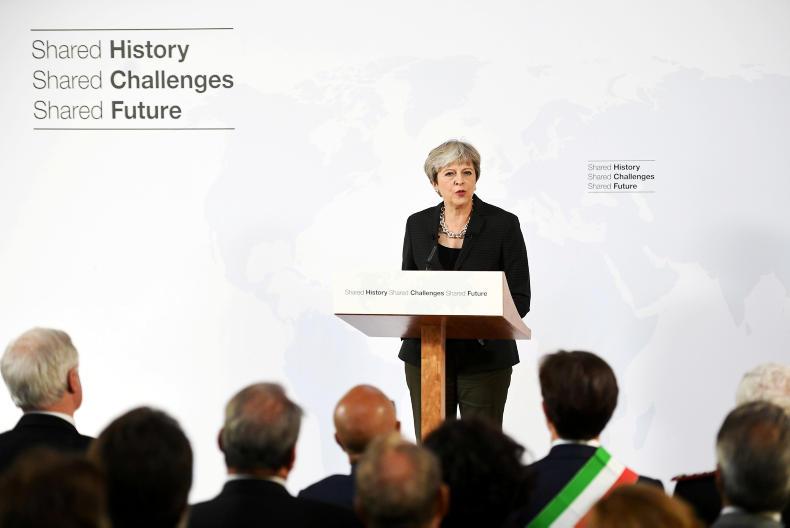In a speech that was widely publicised in advance, it contained much rhetoric about future EU-UK relations, but there were two notable specifics designed to move Brexit negotiations out of their current stalemate when talks resume in Brussels next week.
Agreed payment
For the first time, the UK has agreed that it will make a payment that reflects its commitment to the EU budget until 2020.
In her speech, Theresa May also said that she wanted an “implementation period” of up to two years to facilitate negotiation of a new trading relationship with the EU.
Continued financial contributions
During this, the UK would continue to make its financial contribution and in return expects a continuation of the status quo on trading relationship, though it would want freedom to commence trade negotiations independent of the EU with other third countries.
She avoided use of the word “transition” throughout her speech.
Rights of EU citizens
The prime minister offered further assurances on the rights of EU citizens resident in the UK, by having them enshrined in the exit treaty. However, they would be enforced by UK courts, not the the European Court of Justice, which is the EU negotiating position.
Theresa May also wants a disputes resolution mechanism set up to deal with EU-UK issues, not the ECJ nor indeed the UK courts.
Strong speech
Aside from these specifics, the speech was strong on rhetoric and talked about history: “Judging this chapter of our history on the vision we showed rather than the differences we faced, and that this was the start of a new partnership more than a relationship that had ended.”
Cleared by cabinet
This speech was cleared by Theresa May’s cabinet on Thursday and she was accompanied by chancellor Philip Hammond, foreign secretary Boris Johnson and David Davies, the minister responsible for leading negotiations on exit from the EU.
Both he and Boris Johnson are advocates of the UK going alone after leaving the EU and withdrawing from the Customs Union and single market, to pursue separate free trade deals with other countries.
Continued relationship
The chancellor Philip Hammond prefers a continued relationship with the EU in the longer term.
The EU Commissions-lead negotiator was in Italy on Thursday and addressed the Italian parliament. His speech was focused on what the UK team would bring to next week’s rescheduled round of negotiations in Brussels, as opposed to the prime minister’s set piece speech in Florence. He is, however, expected to give reaction to it this afternoon.
Joe Healy elected vice-president of COPA
Listen: ‘There will be beef in Mercosur trade agreement’ – Hogan









SHARING OPTIONS